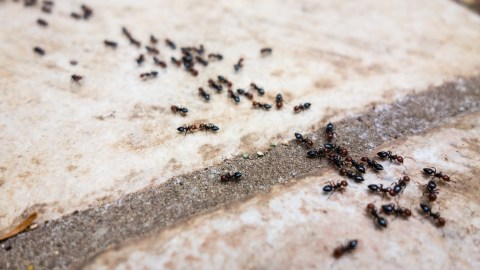Why Do Ants Have an Inherent Bias to Turn Left?

Some animals are born with particular behavioral lateralizations, or inherent biases, for instance, 90 percent of humans are right handed. But ants have an exploratory instinct to turn left when navigating a new nest or a lab maze by a significant margin, according to a recent study.
Rachel Nuwer from Smithsonian Mag reported on the recent study that examined how Temnothorax albipennis ants navigated through unknown mazes and tunnels. The researchers found the biased existed so long as they weren’t following the wall of a maze. But there’s the question of what evolutionary purpose this inherent bias may serve to benefit the ants.
For humans, why the dominance of right-handedness exists is heavily debated among scientists, and there’s significant value to how our lives progress depending on that predisposition. One study suggests infants born right-handed are better-able to mimic their mothers (so long as they are right-handed, too). Children not of the same handedness as their mother tend to have developmental problems. Others believe it has something to do with uniform tool-making, or how we were wired for language. Somewhere along the way of our evolution, this setting was weeded out to help us progress and survive.
PhD student Edmund Hunt of Bristol University suggested a few hypotheses in a press release to explain the behavioral disposition in ants:
“The ants may be using their left eye to detect predators and their right to navigate. Also, their world is maze-like and consistently turning one way is a very good strategy to search and exit mazes.
“Furthermore, as their nest-mates are left-leaning too, there should also be safety in numbers. Consistent turning may also help the ants to monitor nest mates during house hunting. So perhaps leaning left is more shrewd than sinister.”
The study’s findings deserve further investigation in order to dig into the quirks behind this lateral bias, which may shed light on the origins of why other animals exhibit these same behaviors.
Read more at Smithsonian
Photo Credit: Shutterstock




